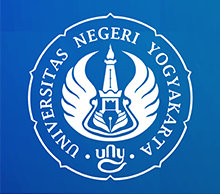Keywords
Web 2.0, universities, Webometrics, ICT, Facebook, Twitter
Document Type
Article
Abstract
The present work determines the presence in the web 2.0 that twenty universities had through their educational portals. The universities are selected according to the Webometrics ranking (the ten best located in Indonesia and the best located worldwide) to identify what Web 2.0 tools they use. This study explores the educational portals of the twenty selected universities to determine which Web 2.0 tools they use and variables of the tools found will be assessed. The study only considers those Web 2.0 tools which are linked to the websites of universities. Of the two most used tools, the relevant indicators are quantified from Youtube "Subscribers" and "Views " and Twitter "tweets" following", and "followers". Afterward, the results are shown and analyzed to establish possible relationships between the indicators of each tool. The results reflect the heterogeneous and, in many cases, polarized presence that universities had on web 2.0 through their educational portals. We hope that the work will help universities have a verifiable reference instrument to develop their academic communication strategies through these tools on the way to a 2.0 university model.
First Page
173
Last Page
181
Page Range
173-181
Issue
2
Volume
7
Digital Object Identifier (DOI)
10.21831/elinvo.v7i2.56862
Source
https://journal.uny.ac.id/index.php/elinvo/article/view/56862
Recommended Citation
H. Jati, "Comparison of Web 2.0 Use on State University Websites in Indonesia and Top World Universities Related to Webometric Ranking,", vol. 7, no. 2, pp. 173 - 181, Dec 2022.
The definitive version is available at https://doi.org/10.21831/elinvo.v7i2.56862
References
B. P. Balaji, M. Vinay, B. Shalini, and M. R. JS, "Web 2.0 use in academic libraries of top ranked Asian universities," The Electronic Library, 2019.
U. D. Ehlers, "Web 2.0-e"learning 2.0-quality 2.0? Quality for new learning cultures," Quality Assurance in Education, 2009.
B. Hiremath and A. Y. Kenchakkanavar, "An alteration of the web 1.0, web 2.0 and web 3.0: a comparative study," Imperial Journal of Interdisciplinary Research, vol. 2, pp. 705-710, 2016.
K. N. Ohei and R. Brink, "Web 3.0 and web 2.0 technologies in higher educational institute: Methodological concept towards a framework development for adoption," International journal for Infonomics (IJI), vol. 12, pp. 1841-1853, 2019.
D. Rosen and C. Nelson, "Web 2.0: A new generation of learners and education," Computers in the Schools, vol. 25, pp. 211-225, 2008.
J. Williams and S. J. Chinn, "Using Web 2.0 to support the active learning experience," Journal of Information Systems Education, vol. 20, p. 165, 2009.
R. Oliver, "The role of ICT in higher education for the 21st century: ICT as a change agent for education," Retrieved April, vol. 14, p. 2007, 2002.
A. Kulakli and S. Mahony, "Knowledge creation and sharing with Web 2.0 tools for teaching and learning roles in so-called University 2.0," Procedia-Social and Behavioral Sciences, vol. 150, pp. 648-657, 2014.
A. Forkosh-Baruch and A. Hershkovitz, "A case study of Israeli higher-education institutes sharing scholarly information with the community via social networks," The internet and higher education, vol. 15, pp. 58-68, 2012.
I. F. Aguillo, B. Granadino, J. L. Ortega, and J. A. Prieto, "Scientific research activity and communication measured with cybermetrics indicators," Journal of the American Society for information science and technology, vol. 57, pp. 1296-1302, 2006.
I. F. Aguillo, J. L. Ortega, and M. Fernández, "Webometric ranking of world universities: Introduction, methodology, and future developments," Higher education in Europe, vol. 33, pp. 233-244, 2008.
I. F. Aguillo and E. Orduña-Malea, "The Ranking Web and the "World-Class" Universities: New Webometric Indicators Based on G-Factor, Interlinking, and Web 2.0 Tools," in Building world-class universities, ed: Brill, 2012, pp. 197-217.
T. C. Almind and P. Ingwersen, "Informetric analyses on the world wide web: methodological approaches to 'webometrics'," Journal of documentation, vol. 53, pp. 404-426, 1997.
J. H. McMillan and S. Schumacher, "Research in Education: Evidence-Based Inquiry, MyEducationLab Series," Pearson, 2010.
C. C. Ragin and H. S. Becker, What is a case?: exploring the foundations of social inquiry: Cambridge university press, 1992.



